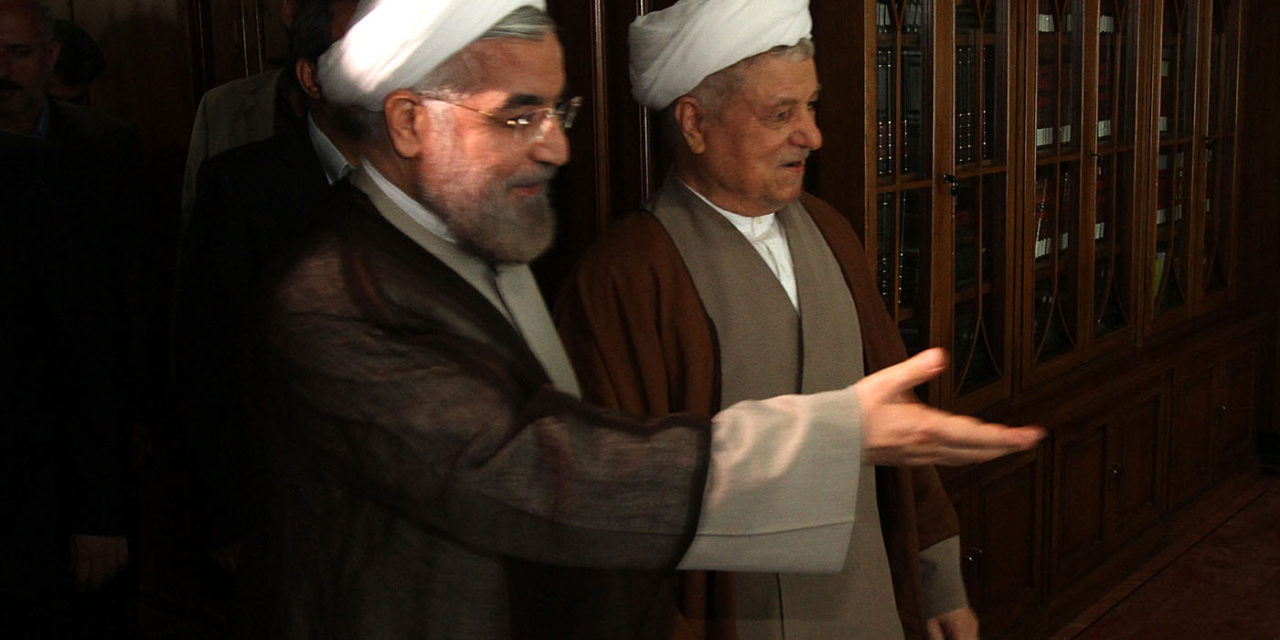Disqualified from standing in June’s Presidential elections, former President Hashemi Rafsanjani has signaled a reminder to his protege, President-elect Hassan Rouhani — and beyond that to the Supreme Leader’s office — that he remains a powerful force behind the newly elected leader.
Issued before Rouhani’s choice of Ministers and his inauguration next month, Rafsanjani’s comments serve as a reminder and warning of Rafsanjani’s power and presence.
The former President does not put out his challenge directly. Instead, last week the video of Rafsanjani’s July 2009 Tehran Friday Prayer, the last he was allowed to give, appeared on his website — including the references to the the post-election protests which Rafsanjani has been blamed for supporting.
Then, the former President turned to a parable, saying that he received a letter from “Maryam”, just after Rouhani’s victory.
Maryam — a young, Iranian ‘everywoman’ — is very excited about the election. But rather than writing to Rouhani or his campaign office, her priority is to thank Rafsanjani, the driving force behind Rouhani’s first-round win.
She begins:
I write this letter one day after victory of our chosen president, Mr. Dr. Rowhani, in the election. If you didn’t support him and if you didn’t lean on people and if you haven’t had such a great patience and wisdom, we would not celebrate our victory now.
“Maryam” says she always admired the former President — in contrast, she does not say she admires Rouhani — because he “planted hope in young hearts”. She thanks Rafsanjani for his support of the candidate, because before the election she had even considered emigrating out of concern that Iran’s future looked bleak.
This Iranian Everywoman has another reason for writing: she asks Rafsanjani for the favor that he support Rouhani since without that backing, the Presidency might not succeed:
I concern perhaps my chosen President might not tolerate such a heavy responsibility on his shoulders. Beside, important responsibility of presidency which you understand it better than anyone, the bad economic situation of Iran or what remained from economic, scared me a lot and I don’t know how our dear Mr. Rowhani would handle it.
Rafsanjani, she writes, does have the capability to deal with these issues — and more than that, he has a duty to do so, “But I know that those who planted hope in hearts of the nation should take care of such things, as well.”
Also featured on the website is Rafsanjani’s speech to members of Iran’s trade, industrial, and production unions, in which he say, “It is expected from the new president to take this opportunity to do his best to improve people’s hope.”
Not content to only express that Rouhani will do his best to fulfil his election pledges and improve the economy — Rafsanjani offers advice on how the President-elect should do so:
By leaning on experts precise studies and he could solve economic problems of people besides improving religious, national and revolutionary values of people.

